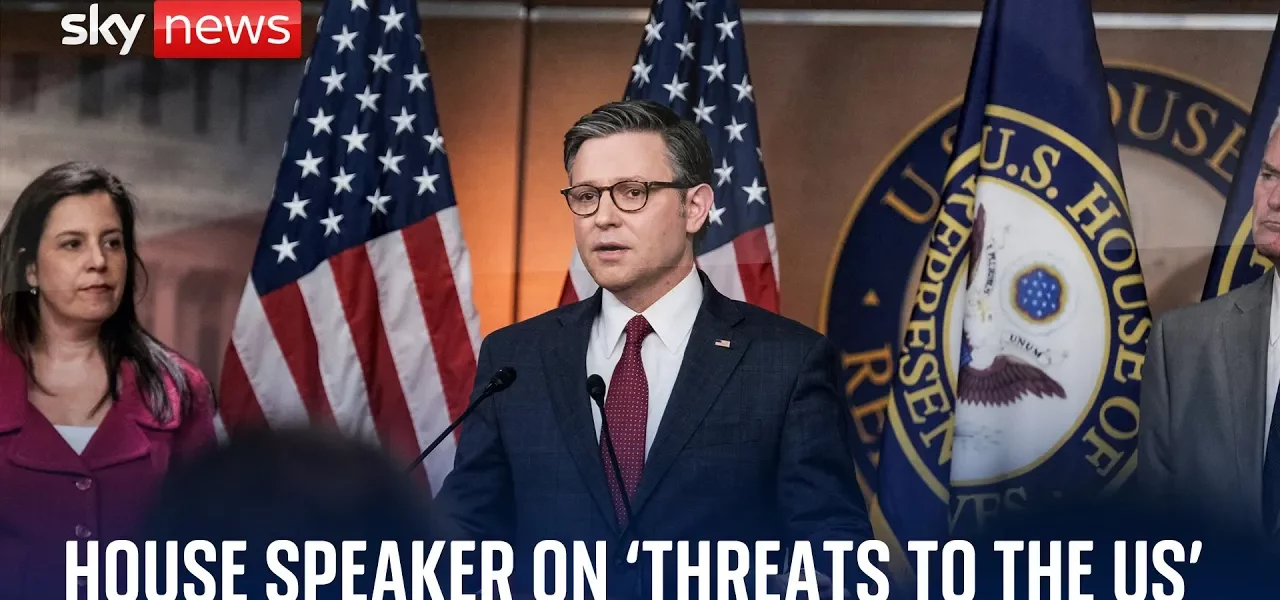Global Conflicts and American Leadership: Analyzing Contemporary Threats

This article explores the current state of global conflicts and the critical role of American leadership in ensuring international stability. With recent threats echoing historical conflicts, understanding the implications of foreign policy decisions is paramount for the future of democracy and global peace.
Introduction
In recent times, the specter of war looms large as various geopolitical tensions resurface, reminiscent of the turbulent periods of the past. The echoes of chants calling for the elimination of the Jewish people, territorial expansion, and justifications for invasions serve as stark reminders of history. Following the end of the Soviet Union, a period of relative peace prevailed, largely due to America’s policy of ‘peace through strength.’ However, the current global landscape reveals a worrying shift towards destabilization, suggesting that the future of liberty, democracy, and international cooperation hangs in the balance.
The Historical Context of Current Threats
Contemporary threats to democracy can be traced back to historical patterns observed during the 20th century. The resurgence of aggressive ideologies and territorial ambitions among authoritarian regimes raises alarms about the potential for global conflict. Key points of concern include:
- Russia’s Aspirations: Russian President Vladimir Putin’s ambitions echo the imperialistic pursuits of past leaders, as he seeks to restore a semblance of the Russian Empire.
- China’s Expansionism: Xi Jinping’s ambitions in the South China Sea and his efforts to expand communist influence are indicative of a broader strategy aimed at undermining Western dominance.
- Middle Eastern Turmoil: The Ayatollah’s desire to resurrect the caliphate and eliminate Israel presents a direct threat to regional stability and security.
The Role of American Leadership
American leadership is pivotal in steering the course of global affairs. The absence of a robust foreign policy has led to increased aggressiveness from adversaries. In analyzing the implications of recent U.S. administrations, several trends become apparent.
The Obama Era
During President Obama’s administration, a series of foreign policy missteps occurred, including:
- International apology tours that weakened America’s standing.
- Military sequestration that compromised national security.
- Unfavorable nuclear agreements that empowered adversaries like Iran.
The Biden Administration
Current policies under President Biden have drawn criticism for:
- Failing to treat China as a formidable adversary.
- Reducing support for key allies such as Israel.
- Opening borders which pose national security risks.
Strategies for Strengthening National Security
Looking towards the future, establishing a three-part foreign policy strategy is essential for safeguarding American interests and global stability:
1. Strengthening Domestic Position
National security begins at home. Addressing the national debt and prioritizing military spending are crucial steps:
- Reducing unnecessary expenditures to focus on defense needs.
- Investing in military infrastructure and capabilities.
2. Economic Influence
Leveraging economic power to deter adversaries is critical:
- Implementing strict sanctions on nations like Iran.
- Restricting investments in China and countering their influence.
3. Strengthening Alliances
Building and reinforcing strategic partnerships is vital for collective security:
- Ensuring NATO members meet defense spending commitments.
- Enhancing military ties with allies in the Indo-Pacific region.
The Importance of Global Peace and Security
The significance of maintaining global peace cannot be overstated. The interconnectedness of nations means that conflicts in one region can have ripple effects worldwide. Key considerations include:
- Free Navigation: Ensuring safe passage in international waters is essential for global trade.
- Prevention of Genocide: Standing against ideologies that threaten specific populations is a moral imperative.
- Economic Stability: Protecting supply chains and trade routes is crucial for national and global economies.
Conclusion
In conclusion, the current global landscape demands proactive and decisive action from the United States. The choices made today will significantly impact the future of democracy, liberty, and international stability. The time has come for American leadership to assert itself and tackle the challenges posed by authoritarian regimes. By prioritizing national security, strengthening alliances, and fostering economic influence, we can ensure a future characterized by peace and prosperity. It is imperative for citizens to engage in these discussions and advocate for policies that uphold the values of freedom and democracy.
Explore related articles on foreign policy and national security.
“`




